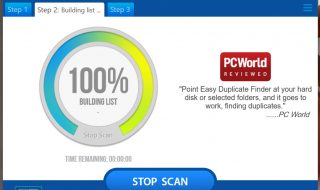Startups operate as freshly founded companies that bear little or no operating history. Their main niche is groundbreaking technology solutions or the production of tech products. With that said, not every new company operates in the manner of a start-up. In fact, there are two key characteristics that set startups apart from regular companies: uncertainty and rapid development. Rapid development often boils down to web development for startups and the manner in which that web development is enacted.
In the US technology sector, startups prove a significant economic tour-de-force. Statistics show that nearly 600,000 new businesses are set up every month during the US. Many of those operate as startups primed to shake up the technological status quo. Each of those newly operating startups will require some form of web development in order to reach their goals. Yet, web development for startups is different than development geared towards a run-of-the-mill business operation. How is developing software for startups different? Let’s explore down below.
Contents
How Is Software Development for Startups Different?
You can’t talk about software development in relation to startups without discussing how different the task at hand can be when compared to ordinary development. Software development for startups differs drastically in engineering. A startup is quickly evolving, dynamic, innovative, and often uncertain of its future. Each of these features pose an impact on the development process and the technology implemented.
Due to the very rapid nature of a startup, web development firms for startups must be able to evolve quickly and without missing a beat. New ideas and projects need to be implemented quickly, while dynamic new aspects of tech are explored to give each new start up an edge over the competition. Any chosen framework should have the capacity to be scalable and user-friendly. It should also serve a multitude of functions. Most developers would suggest using enterprise-ready frameworks when developing for a startup.
This is often due to the fact that they come with multiple modules and enable deployment right out of the box.
Tips For Software Development for Startups

Most startups have a strong footing in the technology sector. Oftentimes they work as app developers or delve into the Internet of Things, making our worlds feel even bigger even as we use smaller and smaller gadgets. Ideas come and go as quickly as the seasons as each startup seeks to bring something new to the field and up big competitors like Google or Apple. Because of this, there are a few key things that web development teams for startups should keep in mind, especially since developing for a tech startup is so different. Below, we’ve outlined the basics.
Always Apply Short Iterations
It can be easy to get lost in the big picture of a development project, especially when working for a fast-paced tech company. However, it is best to only apply short iterations. It is also paramount that every single iteration implemented holds a very specific outcome. Always provide project discipline and rule out the need for random development. The goal of applying short iterations is to shape overall goals and keep on track in a hectic evolving environment.
You can also read : 3 Best Color Picker Tools For Your Windows 11, 10 PC, Laptop, Surface PRO
Structure Time Sensibly
At a startup, the major goal always seems to be geared towards reducing the overall time spent on development. In the early stages of the web development process, technical requirements change often and morph drastically without warning. The overall statement of work tends to be based on market demands, trends, and end-user expectations. Because of this, it is not recommended to write tests while learning to shape the final product. Early testing proves a waste of time and you will end up adding to development time rather than scaling back. Always structure time sensibly and from the approach of a startup sensibility.
Enable Quick Changes
Every software developer knows that refactoring is a dynamic stage of the overall development cycle. Because of this, developers should enable the capacity for adding features quickly and easily. Changes should never come at a high cost. When working with a startup, apply light and flexible frameworks, avoiding Java and .Net which are a better fit for corporate solutions and technology heavyweights.
Utilize Amazon Web Services
Startups don’t typically have a massive budget when it comes to roll out, hence why they often go with local servers rather than hiring dedicated DevOps engineers. Much of the budget at a startup goes to their tech end goals or product design, not to development. With that said, every startup still needs to maintain the possibility of loss of data, a major server crash, or data unavailability. This is why it is suggested to use Amazon Web Services to ensure a smooth deployment and factor in unknowns.
Release Products Quickly
As mentioned above, what makes developing for a startup different is the pace and need for diverse engineering. Startups are highly dynamic, which means their requirements change often and without notice. Get the first version of your development up and running, free from any bugs, but don’t seek perfection right out of the gate. Odds are, the first version you design will be redesigned relatively quickly. In the startup environment, let end-users serve as testers. Speak with them and listen to positive/negative feedback. Startups thrive in this sort of community, especially in the tech sector.
Startup Software Development Is Customer Driven
Startups operate under constant pressure to demonstrate that they are always developing a solution that can fix a dedicated real-life problem. Web development teams need to take this into account. At the end of the day, startup software development is customer driven. Hence why startups are constantly working to optimize a problem/solution to find a perfect fit. To achieve this, startups always discover the needs of their first customers, by testing specifications and working under a minimal set of functional requirements.
In light of this, all developers must be ready to embrace change from day-one. Working and developing for a startup is wildly different than working for a larger company. The overall use of architecture and design patterns that seek to make each feature more independent is paramount when functionality is consistently being updated or changed. Hence why it is always recommended to use frameworks that enable easy design extension and which can benefit the alignment between market uncertainties and products.
By implementing the tips mentioned above and noting the major differences for startups in the technology sector, development can take place that makes sense to both the startup and the web development team.



